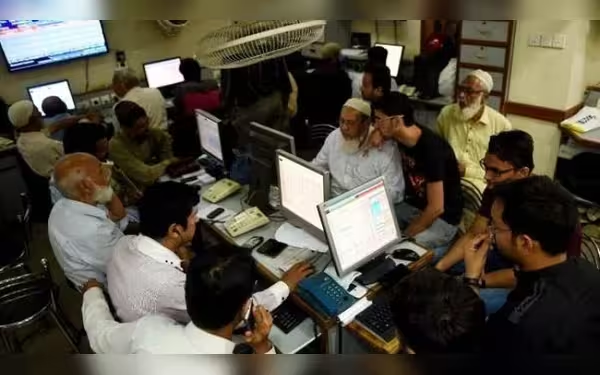Saturday, July 6, 2024 11:37 AM
Tax Burden Surge Impacts Salaried Workforce
- Tax rates surge by 25-40%, reducing real post-tax incomes
- Punitive taxation policies lead to brain drain of skilled professionals
- High taxation, stagnant wages, and rising costs erode middle class
 Image Credits: geo
Image Credits: geoThe formal sector's salaried workforce faces a significant challenge with escalating tax rates, stagnant wages, and high inflation, leading to a decline in living standards and a brain drain of skilled professionals. Urgent tax policy reforms are needed to prevent further erosion of the middle class and retain talent within the country.
The salaried workforce in the formal sector is currently facing a significant challenge due to the increase in tax rates, despite earlier promises of no additional taxes. This has led to a tax burden surge of 25-40%, particularly affecting middle to upper-middle income earners. Over the past five years, these individuals have seen a decline in their purchasing power due to stagnant wages and high inflation rates exceeding 100%.
As a result of the escalating tax regime, real post-tax incomes have decreased by over 40% for most taxpayers. This decline has had a direct impact on the quality of life for many, as utility costs continue to rise faster than inflation, forcing households to make cuts in essential expenses.
The punitive taxation policies have worsened the situation, causing a brain drain as skilled professionals seek opportunities abroad where their earnings are more valuable. The government's failure to retain talent through incentives has only accelerated this exodus.
By narrowing the tax net instead of broadening it, the government has further squeezed after-tax incomes for individuals across different income brackets. The increasing costs of education and healthcare have added to the effective inflation rate for salaried workers, compounding their financial difficulties.
The erosion of the rupee's value, combined with high taxation, has hastened the decline of the middle class, a vital economic segment. This erosion is evident in the stagnant per capita electricity consumption over the past five years, highlighting the strain on household budgets.
The government's approach of penalizing existing taxpayers may lead to unintended consequences such as increased off-shore transfers and a loss of trust in tax policies. The reluctance to reform the tax system has deepened the financial struggles of those in the formal economy, discouraging participation in the formal sector.
The current tax burden on salaried workers in the formal sector is unsustainable and is leading to a decline in living standards for many individuals. It is crucial for the government to reevaluate its tax policies to ensure a fair and equitable system that supports economic growth and prosperity for all. Addressing the issues of high taxation, stagnant wages, and rising costs is essential to prevent further erosion of the middle class and retain skilled professionals within the country.













